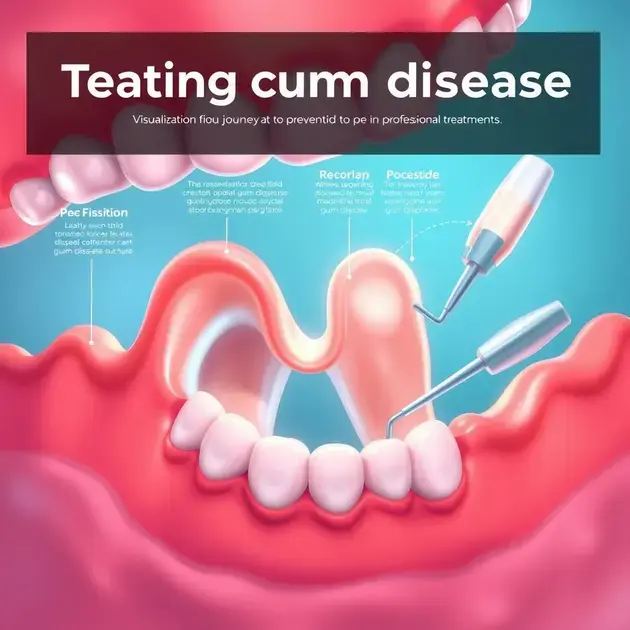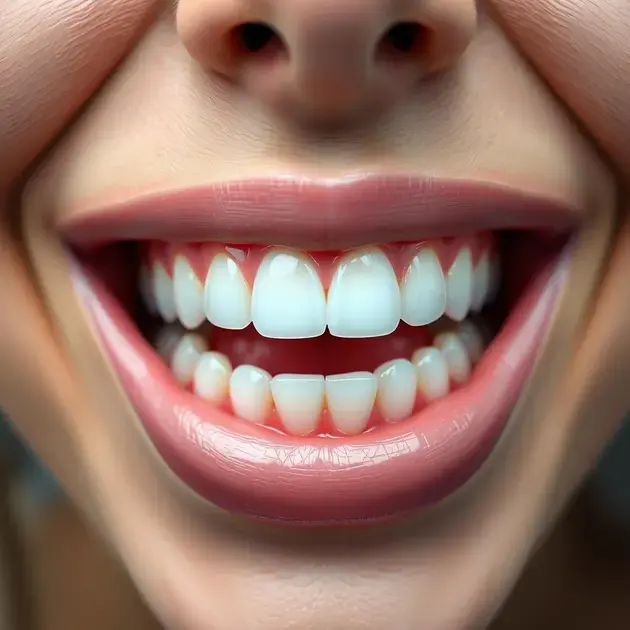Gum disease, also known as periodontal disease, is a prevalent condition affecting millions globally. Treating gum disease effectively requires a deeper understanding of its causes, symptoms, and the latest advancements in treatments. Recognizing the early signs can be a game changer in maintaining oral health and preventing more severe complications.
Recent studies emphasize the importance of early intervention and consistent oral hygiene practices. They highlight how timely treatment can halt the progression of gum disease, thus avoiding the risk of tooth loss and other health issues linked to periodontal disease. This guide aims to equip you with all the necessary knowledge to manage and treat gum disease effectively.

Understanding Gum Disease
Gum disease, also known as periodontal disease, is a common condition that affects the gums and bones supporting the teeth. It is caused by the buildup of plaque, a sticky film of bacteria that forms on the teeth. If left untreated, gum disease can lead to tooth loss and other serious health issues. Understanding the causes, symptoms, and treatments of gum disease is crucial for maintaining good oral health.
Causes of Gum Disease
The main cause of gum disease is poor oral hygiene. When plaque is not removed through regular brushing and flossing, it can harden into tartar, which can only be removed by a dental professional. Other factors that can contribute to gum disease include smoking, hormonal changes, certain medications, and genetic predisposition. To prevent gum disease, it is essential to maintain good oral hygiene practices and visit your dentist regularly for check-ups and cleanings.
Symptoms of Gum Disease
Early stages of gum disease may not present any noticeable symptoms, which is why regular dental visits are crucial for early detection. As gum disease progresses, symptoms may include red, swollen, or tender gums, bleeding when brushing or flossing, receding gums, persistent bad breath, and changes in the way your teeth fit together. If you experience any of these symptoms, it is important to see your dentist as soon as possible for an evaluation.
Treatments for Gum Disease
The treatment for gum disease varies depending on the severity of the condition. In the early stages, professional dental cleanings to remove plaque and tartar buildup may be sufficient. For more advanced cases, treatments such as scaling and root planing, antibiotics, and surgery may be necessary to restore gum health. Your dentist will create a personalized treatment plan based on your specific needs.
Early Intervention for Effective Management
Early intervention is key to effectively managing gum disease. To intervene early, download the app “Dental Care” where you can set reminders for regular brushing and flossing, track your oral hygiene habits, and receive tips on maintaining healthy gums. Additionally, scheduling regular dental check-ups and cleanings is essential for early detection and treatment of gum disease. By taking proactive steps to care for your oral health, you can prevent the progression of gum disease and maintain a healthy smile.

Preventing Gum Disease Through Healthy Habits
Preventing gum disease is essential for maintaining good oral health. One of the most effective ways to prevent gum disease is to establish healthy daily habits. This includes brushing your teeth at least twice a day with a fluoride toothpaste, flossing daily to remove plaque and debris between your teeth, and using an antiseptic mouthwash to reduce bacteria in your mouth. These simple habits can go a long way in preventing gum disease.
In addition to daily oral care, maintaining a healthy diet is crucial in preventing gum disease. Avoiding sugary and acidic foods can help prevent the buildup of plaque, which can lead to gum inflammation and disease. Instead, opt for a balanced diet rich in fruits, vegetables, lean proteins, and whole grains to support good oral health.
Regular dental check-ups are also key in preventing gum disease. Dentists can detect early signs of gum disease and provide treatment before it progresses. They can also perform professional cleanings to remove hardened plaque (tartar) that cannot be removed by regular brushing and flossing.
Lastly, avoid smoking and limit alcohol consumption to prevent gum disease. Smoking weakens the immune system, making it harder for your body to fight off infections, including gum disease. Excessive alcohol consumption can also contribute to gum inflammation and other oral health issues.
Professional Treatments for Advanced Gum Disease
When gum disease advances to a more severe stage, professional treatments may be necessary to restore gum health. One common professional treatment for advanced gum disease is scaling and root planing. This deep cleaning procedure removes tartar and bacteria from the roots of your teeth and helps the gums reattach to the teeth.
In some cases, surgical treatments may be required to treat advanced gum disease. Gum flap surgery, bone grafts, and tissue regeneration procedures are examples of surgical interventions that can help restore damaged gums and bones around the teeth.
Another professional treatment option for advanced gum disease is laser therapy. Laser technology can target and remove infected gum tissue more precisely than traditional methods, promoting faster healing and reduced discomfort for the patient.
Following any professional treatment for advanced gum disease, it is important to maintain good oral hygiene habits and attend regular follow-up appointments with your dentist to monitor your gum health and prevent future disease progression.
Lifestyle Changes to Support Gum Disease Recovery
After receiving treatment for gum disease, making lifestyle changes can help support recovery and prevent recurrence. One important lifestyle change is to quit smoking if you are a smoker. Smoking can impede the healing process and increase the risk of gum disease coming back.
Stress management is also crucial for supporting gum disease recovery. High levels of stress can weaken the immune system and exacerbate inflammation, making it harder for your body to heal. Engaging in relaxation techniques such as meditation, yoga, or deep breathing exercises can help reduce stress levels and support gum health.
Regular exercise is another lifestyle change that can benefit gum disease recovery. Physical activity not only improves overall health but also boosts circulation, which is important for delivering nutrients and oxygen to the gums to support healing.
Lastly, maintaining a well-balanced diet rich in vitamins and minerals is essential for gum disease recovery. Foods high in vitamin C, such as citrus fruits and leafy greens, can help promote gum healing and strengthen the immune system. Adequate hydration is also important for maintaining good oral health.
Conclusion
Preventing gum disease through healthy habits is paramount for maintaining optimal oral health. By incorporating simple yet effective daily routines such as brushing with fluoride toothpaste, consistent flossing, and using antiseptic mouthwash, you can significantly reduce the risk of gum disease. Moreover, a balanced diet rich in fruits, vegetables, lean proteins, and whole grains plays a crucial role in preventing plaque buildup and subsequent gum inflammation. Regular dental check-ups are essential for early detection and intervention, ensuring that any signs of gum disease are addressed promptly.
For cases of advanced gum disease, professional treatments like scaling and root planing, surgical interventions such as gum flap surgery and tissue regeneration, or laser therapy offer effective solutions to restore gum health. Following these treatments, maintaining good oral hygiene practices and attending regular follow-up appointments with your dentist are vital in preventing disease recurrence and ensuring continued gum health.
Supporting gum disease recovery requires lifestyle changes like quitting smoking, managing stress levels through relaxation techniques, engaging in regular exercise to boost circulation and support healing, and maintaining a nutrient-rich diet high in vitamin C and adequate hydration. These lifestyle adjustments can aid in the healing process, strengthen the immune system, and reduce the likelihood of gum disease reemergence. By adopting these habits and seeking professional care when needed, you can safeguard your oral health and prevent the progression of gum disease for a healthier smile and overall well-being.
